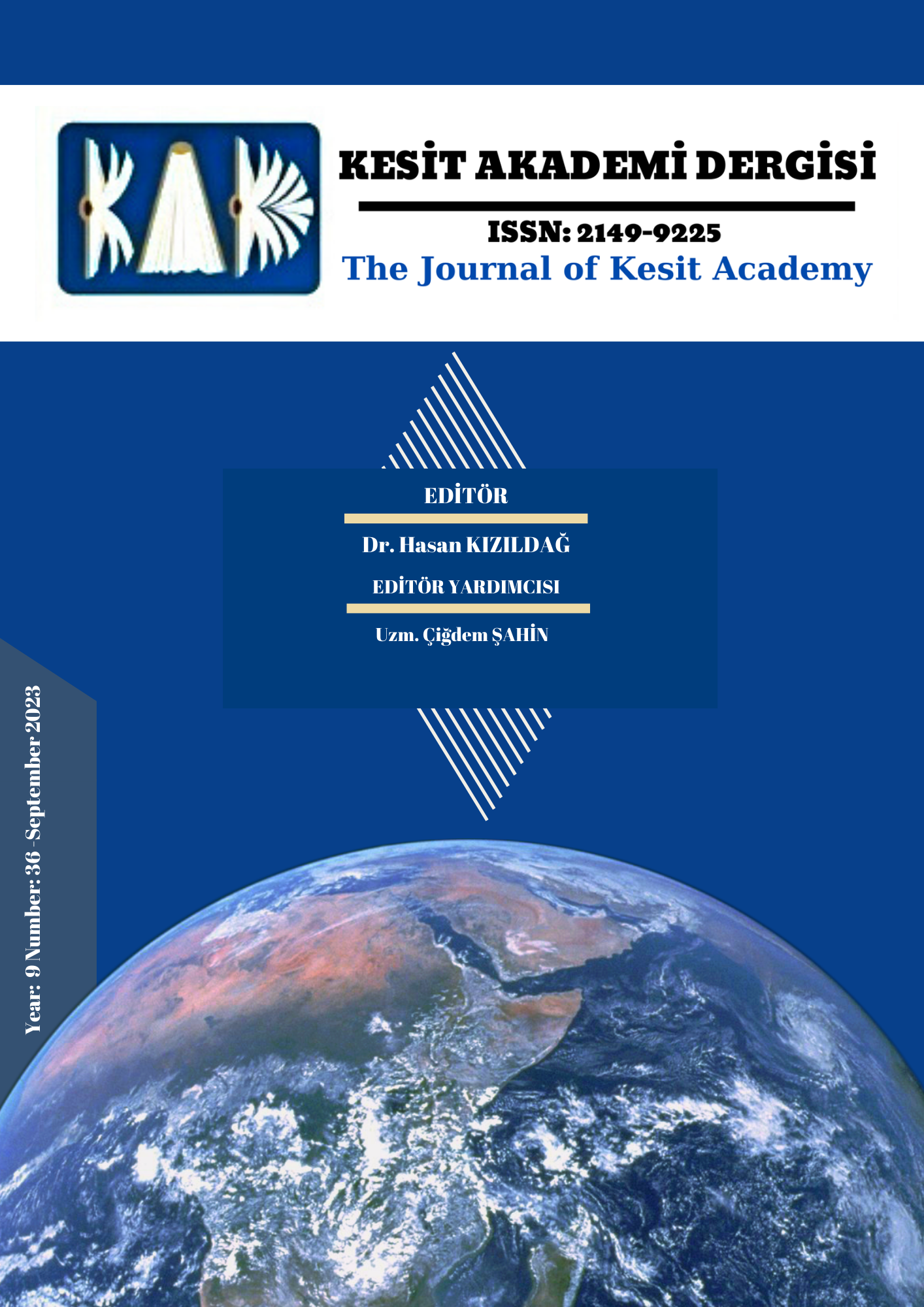Author :
Abstract
Âşık edebiyatı, Türk edebiyatının İslam medeniyeti altında XVI. yüzyılda teşekkül etmiş bir bölümüdür. Bu edebiyat geleneği, Türk toplumunun sosyo-kültürel yapısı, tarihi süreçleri, kültürel etkileşimleri gibi faktörlerinin yanı sıra dini yapısının etkisiyle gelişmiş ve kendine özgü bir tarz oluşturmuştur. Gerek rüya, bâde, mahlas alma gibi geleneksel öğeler bakımından gerekse ilahi aşk, varlık, yaratılış gibi mistik konuları işlemesi bakımından dine yönelik bazı unsurlara sahiptir. Âşıklık geleneğini icra eden âşıklar hem kendi iç dünyalarını hem de toplumun inançlarını şiirlerine yansıtarak sazları ile dile getirmişlerdir. Bu şiirlerin bireysel işlevleri olduğu gibi toplumsal işlevleri de vardır. XX. yüzyılda âşıklık geleneğini icra eden âşıklar arasında öne çıkan isimlerden biri Murat Çobanoğlu'dur. İslam inancının iman ve ibadet unsurlarını âşık şiirine taşımış ve eserleriyle dikkat çekmiştir. İçinde yaşadığı toplumun dini hayatını yansıtan Çobanoğlu’nun Allah, melekler, peygamberler, melekler, ahiret, kader ve ibadetler hakkında pek çok şiiri bulunmaktadır.
Keywords
Abstract
Minstrel literature, Turkish literature under the Islamic civilization XVI. It is a part that was formed in the century. This literary tradition has developed and created a unique style with the influence of its religious structure as well as the socio-cultural structure, historical processes and cultural interactions of the Turkish society. It has some religious elements in terms of traditional elements such as dreams, badass, pseudonyms and mystical subjects such as divine love, existence and creation. The minstrels who practiced the tradition of minstrels expressed their inner world and Islamic beliefs with their instruments by reflecting them in their poems. These poems have individual functions as well as social functions. XX. One of the prominent names among the minstrels who practiced the minstrel tradition in the 19th century is Murat Çobanoğlu. He carried the elements of faith and worship of the Islamic faith into his poetry and drew attention with his works. Reflecting the religious life of the society he lives in, Çobanoğlu has many poems about Allah, angels, prophets, angels, the hereafter, destiny and worship.





